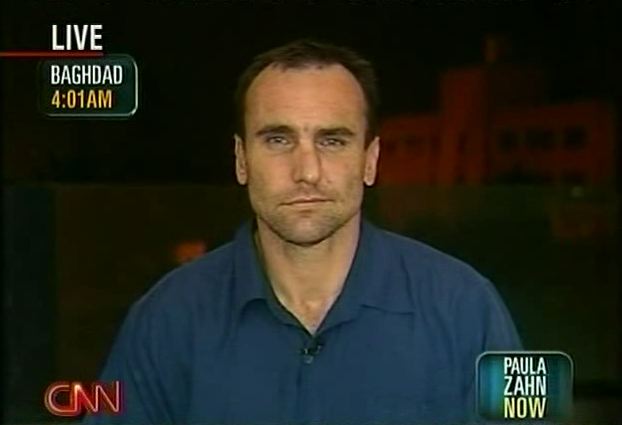PZN: World Refugee Day -- Millions of Iraqis

Click photo to play
Length: 3:45
PAULA ZAHN: This is World Refugee Day and we're devoting much of this hour to a crisis that is swirling all around us. It is a crisis that is a whole lot worse than you probably think.
Worldwide, almost 10 million people are refugees. And, for the first time in five years, that number is going up, not down.
Look at this. Since the war in Iraq started in 2003, some four million Iraqi civilians have been forced from their homes. Two million of them have fled the country completely, including a million just last year. The numbers are staggering. We're talking about children, as well as adults.
Where are they going? Is anyone taking care of them? As part of CNN's special coverage of World Refugee Day, we are devoting all of our resources to finding some answers tonight.
And we get started in Iraq itself, where the chaos is creating new refugees every day.
Let's turn to Michael Ware, who is in Baghdad.
We talked about those stunning numbers, four million Iraqis displaced. Where have they all gone?
MICHAEL WARE, CNN CORRESPONDENT: Well, Paula, as you say, almost two million of them are still here in Iraq.
They have been forced into fetid refugee camps that have popped up within the capital and beyond, or they have gone to relatives' already overcrowded homes, anywhere, just to get away from the death squads. However, another almost two million have crossed Iraq's borders, mostly into neighboring Jordan and Syria. Now, Jordan has all but closed its borders to many of these Iraqis now. Syria, for the time being, is keeping the floodgates open.
But there's many rumors that, soon, they too, will shut their gates. Once these people leave their homes -- be it in Iraq or be it in Syria or Jordan, or some of the other Arab countries -- there is very little to offer. Men are going without work. Children are going without school. And, by and large, most people are going without health care -- Paula.
ZAHN: So, you have told us a little about what some of the Arab countries are doing to help. What is the United States doing for these people?
WARE: Paula, quite frankly, not a great deal at all.
Indeed, after the Vietnam War, President Ford spoke about America's profound obligation to help particularly those Vietnamese who helped America.
Well, now there's nothing but a profound shame. Since the war began, only as many 701 Iraqis, according to the State Department, have made it to U.S. shores. The vast majority of that 700 are applicants from the time of Saddam's regime. Only a handful are actually victims of this war.
Now, the State Department has admitted: That's not enough. That's not good enough. We have been slow to respond, and we have not met our moral commitment.
Now a new system is in place, trying to balance America's security concerns post-9/11 with what the State Department acknowledges is its very real moral commitment. We're now going to see, according to the latest figures, as many as 15,000 come to America this year alone.
And people like translators, Iraqis who have worked for the U.S. government, they can never come home. They have a death sentence. So, by the end of the day, America can expect to have tens of thousands of Iraqis come to U.S. shores -- Paula.
ZAHN: And that poses a whole new set of questions for us here.
Michael Ware, thanks so much -- the pictures, of course, telling a very powerful story there.
